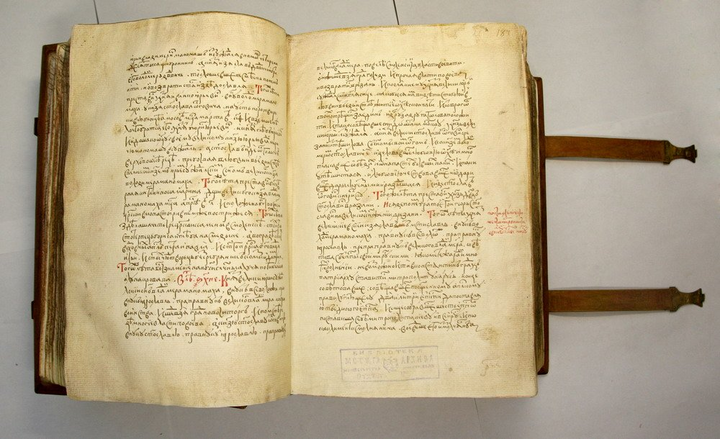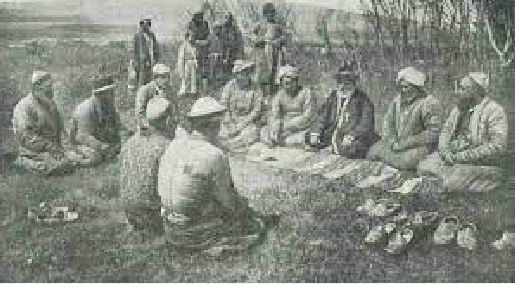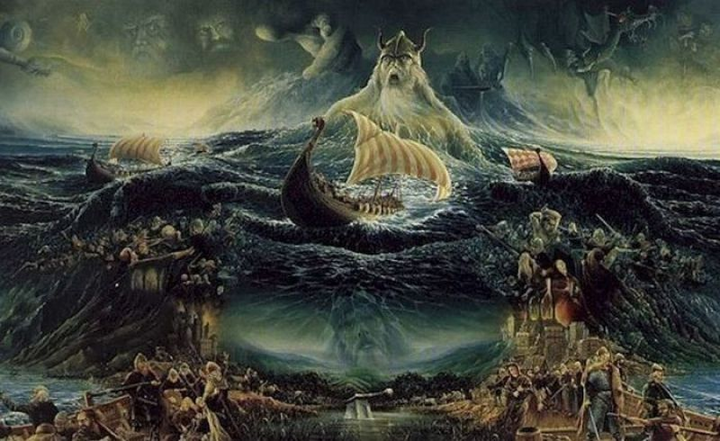To analyze the problem of the establishment of Kazakh-Chinese relations in the second half of the XVIII century it is necessary to enlarge the study of materials from the archives of China, which are not in a visual field of researchers.
Modern approach to the researching of this problem is based on the archives of Russian and Chinese literature, including correspondence of governors, documents and materials of diplomatic missions and Kazakh oral folklore, to name but a few.
Thanks to the «Cultural Heritage» programme Kazakhstan historians has an access to the huge material of documents from Chinese archives, which, according to the modern methods of research activity, are related to the history and culture of Kazakhstan. Contemporary works of Kazakhstan historians have formulated an image of more developed Qing Empire in the second half of XVIII century in comparison with Kazakh Khanate. This idea is based on such data as Chinese population, number of armed forces, development of military art, common economic upward in Qing Empire, as well as typical China-centrism in sources of that period. According to such subjective information, the capabilities of Qing Empire in the sphere of foreign policy in Asian region should be more successful. However, well-known events demonstrate that the Qing Empire conquered only Dzungaria and the lands of Kazakh Khanate which were won by dzungars.
During the study of this sphere of researches ethnographical data about Chinese people of the second half of XVIII are not taken into consideration. Such materials as personal correspondence between military men, information about equipment of Chinese army, personal letters, documents and materials, characterizing developments in Chinese armed forces. Many narrative sources stay out of the research area as it requires absolutely new approaches.
What can unsuccessful invasion of Qing troops to Kazakh Khanate in 1775–1757 explain? In search of the reasons some traditionally advert to the data characterizing the quality of weapons, number of troops, ethnical composition of the army, strategy of war of Chinese army and so on [1: 128].
Last research materials on analyzing of documents and letters of that epoch [2: 14], [3: 14] confirm Beijing’s wish not to pursue an expansionist policy toward Kazakh Khanate [1: 128]. Whether it is possible to consider Beijing’s initiative as its weakness in aggressive foreign policy? The answer is obvious. The influence of Sino-centrism on many Chinese diplomatic documents related to Kazakh Khanate of that time is evident. The Qianlong Emperor wrote among other things and in letters addressed to Empress Catherine II as «our daughter» [1: 134].
Bipolarity of the theme under consideration should not affect the studied sources as the development of Kazakh-Chinese relations must be researched in the light of Kazakh-Russian, Russian-Chinese, Chinese-Dzungar and Russian-Dzungar relations as well. Even uncomplicated analysis can reveal many interesting facts. For example, it is possible to indicate basic principles of Chinese foreign policy toward Dzungaria especially in the period of Emperor Qianlong «the most peaceful with it (Dzungaria — Zh. Yergaliyev) neighborhood was considered to be the phase of the fight for destruction» [4: 128].
Let us mark out the common principles of «peaceful» war including:
1. Military expansion
2. Establishment of peace from the position of China-centrism
3. «Peaceful» economic war
4. Qing diplomatic missions performing diplomatic and intelligence functions
5. Building of fortresses. Everything was typical for Chinese-Dzungaria relations development. However, after the destruction of Dzungaria, in the difficult period for it, by the Qing troops, Beijing’s methods of peaceful war started to expand on Kazakh Khanate as well [5: 290].
But thanks to the long-sighted policy of Khan Abylay, Beijing’s plans was not realized.
Yergaliyev Zh. Kh.
Sh. Ualikhanov Kokshetau State University, Kokshetau
darc_1989@mail.ru
Literature:
1. Abuyev K.K. (2006), Khan Abylay and his time, Yelorda, Astana, 304 p. (Абуев К. К. Хан Абылай и его время — Астана: Елорда, 2006.-304 с.)
2. Yezhenkhanuly B. (2012), Who rewrote Khan Abylay’s letter? Kazakhstan truth, № 260–261 (Еженханұлы Б. Кто переписал письмо хана Абылая? / Казахстанская правда, № 260–261.-2012)
3. Yezhenkhanuly B. (2012), Despite the destiny, Kazakhstan truth, № 274–275 (Еженханұлы Б. На перекор судьбе. / Казахстанская правда, № 274–275.-2012)
4. Zolotov O.V. (1991), China and Eastern Turkestan in XV–XVIII centuries (interstate relations), Nauka, Moscow, 168 p. (Зотов О. В. Китай и Восточный Туркестан в XV—XVIII вв. (межгосударственные отношения). — М.: Наука. Главная редакция восточной литературы, 1991.-168 с.)
5. Zlatkin I. Ya. (1983), History of Dzungar Khanate. 1636–1758, II Ed., 169 p. (Златкин И. Я. История Джунгарского ханства. 1636–1758. Изд. 2-е. М., 1983 г.169)
Source: Materials of the «Valihanovskie reading — 10» international theoretical and practical conference, April 24–26, 2013, pp 167–169



